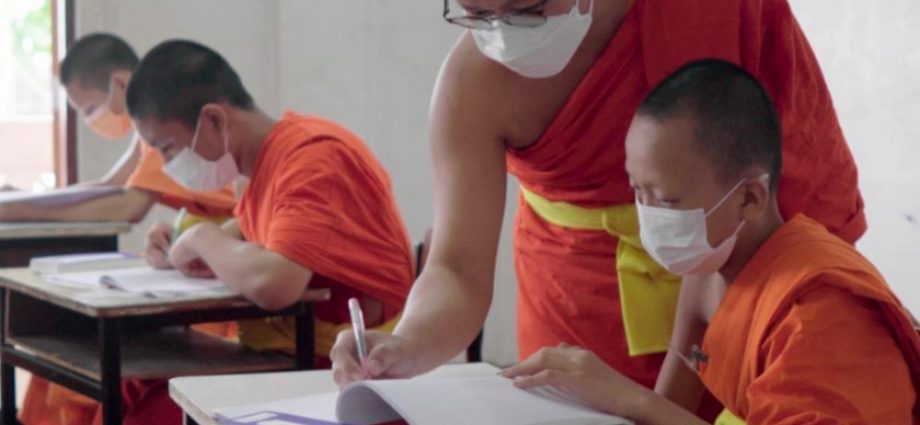Student-centred approach leads to high test scores

The Wat Phra Kaeo Don Tao Suchadaram School for novices in Lampang should serve as a model school due to its ability to produce high-quality students, according to the Office for National Education Standards and Quality Assessment (ONESQA) following their assessment of educational institutions in the kingdom.
Nantha Nguantad, acting director of the ONESQA, said the office recently evaluated 465 Phrapariyattidham schools for novices and found most of them performed well.
Ms Nantha hailed Wat Phra Kaeo Don Tao Suchadaram School in particular for its high-quality students, teaching skills and management processes, adding the school applies a student-centred learning method.
The Phrapariyattidham schools do not only teach the dhamma and the Pali language to novices, she said, adding they also provide formal curriculums for middle and high school education. Most of the students come from poor families who want to have the children educated by ordaining them, Ms Nantha said.
“Our latest evaluation showed an improvement in the education quality in the Phrapariyattidham schools in many aspects,” Ms Nantha said. “We are certain that our students will graduate [meeting] the national education standard.”
Ms Nantha said at Wat Phra Kaeo Don Tao Suchadaram School, most Mattayom (Grade 12) students pass the annual Ordinary National Education Test test with scores higher than the national average in many subjects, including Thai language, social studies and science.
The result reflects the quality of the school’s teaching method, Ms Nantha said. It focuses on practical teaching as well as the use of technology in education, she said.
Students and faculty have been awarded in many academic contests, becoming a role-model school, Ms Nantha said.
Phra Khru Siriratanasophit, director of the school, said the school’s success is the result of efforts by many related agencies and educational institutes, such as Lampang Rajabhat University, Lampang Vocational College and Bunyawat Witthayalai School in the province, which contributed by sharing knowledge and providing online courses to its students.
“The school wants to ensure that our students will grow up to be good people and be able to make an honest living,” he said. “We also focus on the academic and farming courses to cultivate awareness of the sufficiency economy philosophy among our students.”
In addition, students must also pass the dhamma study test, he said. Currently, Buddhism National Educational Test results show the students have managed to rank first at the provincial and national levels, he said.
He said Wat Phra Kaeo Don Tao, the temple, is seeking funds for students who want to further their studies at university.
Meanwhile, in Chiang Mai, deputy mayor Prayad Ratchasom said the Tambon Ta Kwang Municipality Child Development Centre in Saraphi district has set aside 1 million baht to build a swimming pool to provide swimming lessons for 3–5-year-old children.
The aim is to prevent them from drowning, which is a major concern among parents, he said.
“Children like swimming. It’s a fun activity that will make them healthy and strong,” he said.
Teachers at the daycare centre will also teach children how to alert people nearby in case they are left inside a vehicle to prevent hot car deaths, Mr Prayad said.
The visit to the Tambon Ta Kwang Municipality Child Development Centre in Chiang Mai is part of ONESQA’s evaluation of quality. It found that 93% of 7,000 nationwide passed the evaluation.
The ONESQA is now planning to promote swimming and other survival skills to children at other development centres in the future, said acting director Nantha.

A teacher explains an assignment to a student. The school promotes a student-centric teaching method as the key to success in education.

